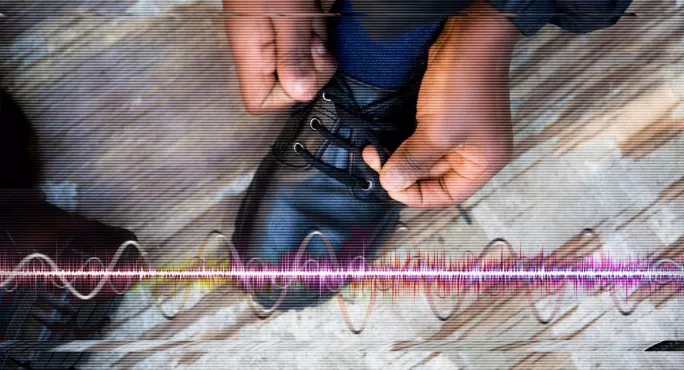- Home
- Video & Podcasts
- Primary
- The problem with the term ‘school-ready’
The problem with the term ‘school-ready’

As this school year draws to a close, thousands of children are attending taster sessions and gearing up to enter primary school in September. But are they ready for it?
It’s something that parents are particularly worried about this year: a report published by the Education Endowment Foundation (EEF) this year says that a large proportion of parents were concerned about their children starting school and the impact that the pandemic had had on their child’s school readiness.
But what exactly do we mean by “school-ready”?
Dr Louise Kay researches early years foundation stage (EYFS) practice at the University of Sheffield School of Education, and in an episode of the Tes Podagogy podcast from 2018, she says that from policymakers to parents, and teachers to pupils, everyone seems to have a different answer.
“There is no clear definition about what school readiness actually means. Therefore, it has been left open to interpretation,” she explains.
In the podcast, she talks at length about the problems with the concept of school readiness and the way it is assessed by the government.
Listen to more Tes Podagogy:
- How do we fix mainstream SEND provision?
- Is AI set to change the way you teach?
- Why birthplace determines how children deal with stress
Most assume that school readiness applies to children who are starting Reception, she explains - but, actually, the government looks at it as the transition from Reception to Year 1.
“So in a short space of time you have two transitions - the institutional transition from home or pre-school/nursery into Reception, and then the curricula transition when children move from Reception into Year 1. Two very different skillsets are required for those two transitions,” Kay says.
Different definitions of ‘school-ready’
“So when school readiness is blurred in definition and understanding between these two transitions, it is very problematic for teachers, parents and pupils.”
“School-ready”, she explains, is actually a term used to describe those children who reach a “good level of development” in all aspects of the early learning goals by the end of EYFS. However, this measure, she stresses, is flawed.
“A child could effectively achieve all the early learning goals except for the most difficult - the writing one - and they are then measured as being not school-ready. That’s very problematic. You are then sending children into Year 1 in a deficit position as ‘emerging’, which does not actually tell you much about what that child can do,” Kay says.
“The children that do not reach the marker for school-ready tend to be those on free school meals, children with English as an additional language, children with SEND, summer-born children and Gypsy Roma children - so the children who are already marginalised within society are those that are not reaching those goals and are then classified as being not ready on entry to school.”
This, she says, sets up children negatively for their school experience, and it is an incomplete measure of a child.
“We do need to recognise that when children enter Reception they bring with them a wealth of different experiences and there is huge differentiation in what they can and cannot do,” Kay says.
“Those teachers only have a very short length of time to hit that good level of development. This objective ignores the complexity and the diversity of the children we are working with.
“Some of these children are still four years old when this assessment takes place. And the fact teachers have such a short space of time to get children to that good level of development is a real issue.”
In the podcast, Kay also discusses how the pursuit of school readiness dictates pedagogy in a way that makes many EYFS teachers feel uncomfortable, and she explains how it is sidelining creativity and play in this phase. She calls for a more flexible approach to formalised learning.
You need a Tes subscription to read this article
Subscribe now to read this article and get other subscriber-only content:
- Unlimited access to all Tes magazine content
- Exclusive subscriber-only stories
- Award-winning email newsletters
Already a subscriber? Log in
You need a subscription to read this article
Subscribe now to read this article and get other subscriber-only content, including:
- Unlimited access to all Tes magazine content
- Exclusive subscriber-only stories
- Award-winning email newsletters
topics in this article



